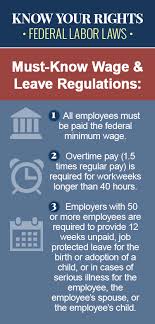Pay Stub Laws in Michigan State Guide Templates
Introduction to Michigan Pay Stub Laws
The term Michigan pay stub laws refers to the legal requirements and best practices surrounding how employers report wages, deductions, and net pay to employees. While Michigan does not enforce a specific pay stub format, all employers must comply with federal wage and recordkeeping standards. This guide outlines Michigan’s payroll obligations, required pay stub elements, and how to create professional, compliant wage statements with a Pay Stub Generator or Regular Pay Stub template.
For additional compliance resources, visit our Payroll Compliance Guide or the State Payroll Guides section to compare Michigan’s requirements with other states.
Federal vs State Requirements
Since Michigan does not require a specific pay stub format, employers must align with federal standards set by the Fair Labor Standards Act (FLSA). The FLSA mandates that employers maintain detailed records of wages, hours worked, and deductions. Under Michigan pay stub laws, providing clear, itemized pay statements is considered a best practice to ensure transparency and legal compliance.
Employers looking to operate in multiple states can explore our Multi-State Payroll Guide for insight into varying pay stub regulations across the U.S.
What Must Be Included on a Michigan Pay Stub
While Michigan offers flexibility in formatting, a compliant pay stub should include these elements:
- Employer name and contact information
- Employee name or ID
- Pay period start and end dates
- Gross wages earned (including bonuses and commissions)
- Regular and overtime hours with pay rates
- Itemized deductions (taxes, insurance, retirement, etc.)
- Net pay after deductions
- Year-to-date (YTD) totals for all categories
Using a Regular Pay Stub template ensures all key details appear correctly on each statement. Learn more about formatting in our Custom Pay Stub Template Guide.
Common Deductions Under Michigan Law
Employers must clearly list every deduction to comply with Michigan pay stub laws. Typical deductions include:
- Federal income tax
- Social Security and Medicare (FICA)
- Health insurance premiums
- Retirement or 401(k) contributions
- Wage garnishments or child support
- Voluntary benefits or union dues
Providing a breakdown of pre-tax and post-tax deductions ensures employees fully understand their take-home pay. For more details, see our Payroll Basics for Small Business article.
How to Create a Compliant Pay Stub
Follow these steps to produce legally compliant pay stubs that meet both state and federal payroll standards:
Step 1: Collect Employee & Employer Information
Gather accurate identification details such as names, addresses, tax setup, and company data.
Step 2: Calculate Earnings
Compute gross pay based on hourly rates, salaries, or commissions. For help, use a Pay Stub Generator that supports Michigan payroll structures.
Step 3: Apply Deductions
Deduct federal, FICA, and any voluntary contributions. Ensure all deductions are itemized to comply with Michigan pay stub laws.
Step 4: Determine Net Pay and YTD Totals
Display the final take-home pay along with year-to-date totals for transparency and accuracy.
Step 5: Use a Template or Digital Tool
Use a Regular Pay Stub template or online tool to minimize human error and ensure consistency. For more guidance, check our How to Create a Pay Stub Online tutorial.
Templates vs Online Tools
Templates provide structure, while digital generators add automation. A Pay Stub Generator automatically calculates taxes and deductions, reducing the risk of mistakes. Many online tools also allow PDF downloads and secure record storage — both of which are essential under Michigan pay stub laws.
Electronic Delivery and Employee Consent
Electronic pay stubs are permitted in Michigan as long as employees have access to view and print them. Employers must maintain digital backups to comply with federal recordkeeping laws. Learn more about secure digital delivery in our Digital Payroll Systems Guide.
Recordkeeping and Retention Requirements
Under federal law, employers must retain payroll records for at least three years, including pay statements, deductions, and tax data. Following this retention policy keeps your business compliant with Michigan pay stub laws. For recordkeeping strategies, see our Payroll Recordkeeping Best Practices.
Common Mistakes and Pitfalls
- Omitting overtime or bonus pay
- Failing to itemize deductions
- Using outdated tax tables
- Ignoring year-to-date totals
- Missing employer or employee data
To avoid errors, use a digital pay stub generator designed for compliance. For additional troubleshooting, explore our Payroll Error Checklist.
When to Seek Professional Payroll Advice
If your business operates across multiple states or handles complex deductions, consult a payroll expert to align your processes with both federal and state laws. For further guidance, refer to our Multi-State Payroll Guide.
Conclusion — Comply Confidently with Michigan Pay Stub Laws
Although Michigan does not require a fixed pay stub format, adhering to federal standards and best practices ensures smooth payroll management and employee satisfaction. By using a Pay Stub Generator or Regular Pay Stub template, employers can create accurate, professional, and compliant pay stubs with ease.
For related compliance information, visit our State Payroll Guides or explore the Michigan Payroll Resources section for in-depth local payroll insights.

